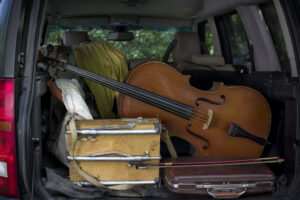If you’ve ever juggled soccer practice, school pickup, dinner, and a last-minute science project—then we get you. As music teachers who work closely with busy families, we know firsthand how valuable in-home music lessons convenience really is.
And let’s be honest: it’s not just about saving gas. It’s about reducing daily chaos so your child can focus on growing as a musician—without one more car ride crammed into your day.
No Commute Means More Time for What Matters
Between traffic delays, forgotten books, and tight after-school schedules, commuting to lessons can be more stressful than it’s worth. In-home lessons remove that barrier entirely.
Here’s what you gain when the teacher comes to you:
- Flexible scheduling based on your real-life routines
- More family time (or time to catch your breath!)
- A consistent learning environment where students are comfortable and focused
Kids Learn Better at Home
Our students tend to be more relaxed and confident when they learn in a familiar space. That means fewer distractions, stronger engagement, and better progress.
We’ve even noticed that students who learn at home tend to stick with lessons longer. When something’s convenient, enjoyable, and easy to maintain—it becomes a habit, not a hassle.
For Parents, It’s Peace of Mind
You’re not just saving time—you’re staying connected to your child’s musical journey. Want to hear their new piece? Peek in from the kitchen. Want to support practice? We’ll show you how.
And it’s not just anecdotal—research shows that reducing commute stress for families directly improves quality of life and supports better learning routines. The American Academy of Pediatrics emphasizes the value of routines that support well-being and minimize time lost to daily transitions.
Check out our post on how to get your child to practice their instrument for more easy tips to support learning between lessons.
FAQ: In-Home Music Lessons Convenience
What instruments can be taught at home?
Most! Piano, guitar, violin, voice, and even drums can be taught at home with the right setup.
Is there a minimum age for starting lessons?
We recommend starting around age 4 or 5, depending on the instrument and attention span.
Do I need to stay during the lesson?
For younger children, yes—but older students can often learn independently while you’re nearby.
